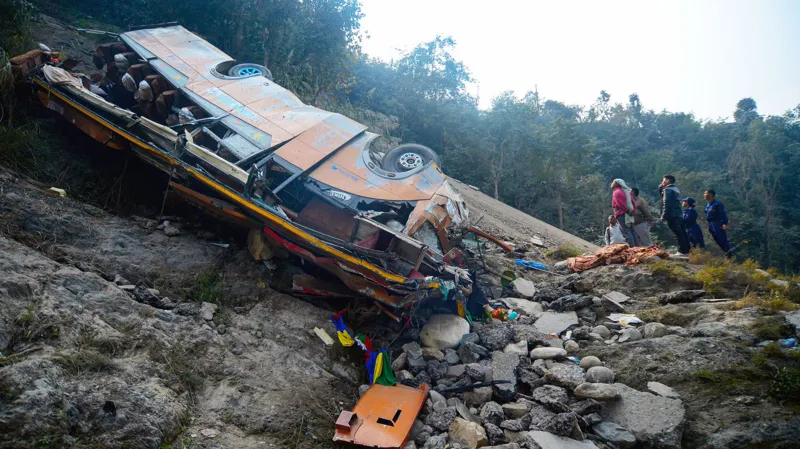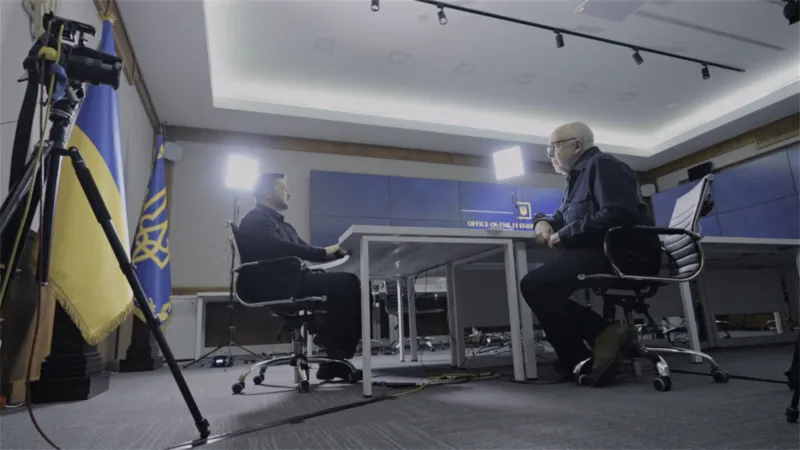Foreign News
Biden hails ‘real progress’ after four hours of talks with China’s Xi

US President Joe Biden and Chinese President Xi Jinping have concluded more than four hours of talks with a commitment to stabilise strained bilateral ties and restore some military-to-military communications.
The two leaders met on Wednesday for the first time in a year at Fioli Estate, a country retreat about 40 kilometres (25 miles) south of San Francisco.
After a handshake and smiles, they sat down for talks that lasted more than two hours. Next was a working lunch with key officials, followed by a stroll around the manicured gardens.
Writing on social media site X, Biden said he valued the conversation he had with Xi. “I think it’s paramount that we understand each other clearly, leader to leader,” Biden wrote. “There are critical global challenges that demand our joint leadership. And today, we made real progress.”
It was the two leaders’ first face-to-face meeting in a year and it coincided with the annual summit of the 21-member Asia-Pacific Economic Cooperation (APEC) a short drive away in San Francisco.
“Planet Earth is big enough for the two countries to succeed,” Xi told Biden.
Officials on both sides of the Pacific set expectations low ahead of the meeting, given longstanding disagreements over issues from Taiwan to the South China Sea, the Israel – Hamas war, Russia’s full-scale invasion of Ukraine, North Korea and human rights.
In the event, they reached an agreement to reopen military contacts that were cut after then-House of Representatives Speaker Nancy Pelosi visited Taiwan, a self-ruled island that Beijing claims as its own, in August 2022.
A US official told reporters there was significant back and forth between the two leaders over Taiwan, with Biden chiding China over its massive military build-up around the island, and asking it to respect the territory’s electoral process. Presidential and parliamentary elections are scheduled for January, with William Lai, the current vice president and a man Beijing has labelled a “separatist” leading opinion polls.
Xi, meanwhile, stressed the island was part of China.
“The US side should stop arming Taiwan, and support China’s peaceful reunification,” Xi told Biden, according to China’s Foreign Ministry. “China will realise reunification, and this is unstoppable.”
Cooperation between the US and China, which make up the world’s two largest economies, remains vital for progress on global issues such as climate change. But both sides have expressed mounting frustration with the other, disagreeing over issues such as technology and global politics.
Washington has accused China of offering Russia an economic lifeline as Moscow continues its war in Ukaraine.
The two sides have also differed on the Middle East, where China has called for a ceasefire between Israel and the Palestinian armed group Hamas. The US, meanwhile, has thrown its support behind Israel and used its position on the United Nations Security Council to veto calls for a ceasefire.
Military contacts
After the meeting ended, a senior US official told the Associated Press news agency that the military communication agreements would mean that US Defense Secretary Lloyd Austin would be able to meet his Chinese counterpart once one has been appointed.
Beijing is currently without a defence minister after Li Shangfu, who was under US sanctions and had rebuffed attempts at contact, was fired without explanation last month. He had disappeared from public view two months earlier.
The door will also open for contacts at more junior levels, including allowing the Hawaii-based commander of US Pacific forces to engage with counterpart theatre commanders, the official added. The agreement is also expected to mean more operational engagements between ship drivers and others in each country.
Xi said after the meeting that the resumption of high-level military dialogues was made on the basis of equity and respect, according to a statement released by China Central Television, the state broadcaster.
The talks also led to an agreement to cooperate on tackling the source of fentanyl, the highly addictive synthetic opioid that has become a leading cause of drug overdoses in the US.
Under the agreement, China will go directly after specific companies that produce the chemicals used to make the drug, a senior US official told reporters.
Biden also called on Xi to use his influence with Iran to make it clear that Tehran and its proxies should avoid provocative action that could spread the Israel-Hamas conflict across the Middle East.
During the exchange, Biden did most of the talking and Xi mostly listened, according to the US official. Foreign Minister Wang Yi has assured the US that the Chinese have communicated concerns to Iran on the matter.
The US president also raised concerns about the status of US citizens that Washington believes are wrongly detained in China and human rights.
Before the meeting, both countries backed a new renewable energy target and said they would work to reduce methane and plastic pollution, a renewl of climate coorporation that was also a casualty of Pelosi’s Taiwan visit.
(Aljazeera)
Foreign News
Briton among 19 killed in Nepal bus crash

A 24-year-old British man is among 19 people who were killed in a bus crash in Nepal, police say.
The bus – which had been carrying tourists – had been travelling to the capital, Kathmandu, when it lost control and fell 200m on to the bank of the Trishuli river, in the country’s central Dhading district, in the early hours of Monday morning.
There were 44 people onboard including the driver, 25 of whom suffered injuries. The bus had been travelling from Pokhara, a popular tourist spot.
Nepal’s Home Ministry has created a five-member taskforce to investigate the cause of the incident. The UK Foreign Office said it was assisting the family of the Briton who was killed.
Nepalese authorities identified him as Stewart Dominic Ethan. His name has not been confirmed by the Foreign Office.
Nepalese police say they have identified all 19 bodies, including a 40-year-old Chinese woman and a 32-year-old man from India. Among the injured is a Chinese national and a New Zealander.
All the injured had been taken to hospitals in the capital, they added. Children were among those onboard.
Multiple teams were sent to the site, including police units, the army and a rescue team of divers, authorities said.
Police spokesman Abinarayan Kafle said 17 people died at the scene, with two more dying while receiving treatment, BBC Nepali reported.
Road accidents are relatively commonplace in Nepal, due to a range of factors including poor road maintenance and narrow paths in mountainous areas.
In 2024, at least 14 people died after a bus travelling from Pokhara to Kathmandu fell into the Marsyangdi river in the Tanahun district.
“We are supporting the family of a British man who has died in Nepal and are in contact with the local authorities,” a Foreign Office spokesman told the BBC.
Nepal is a popular destination for many international visitors, especially climbers, who travel there to access a key section of the Himalaya mountain range that includes Mount Everest.
Home to eight of the world’s tallest peaks, mountaineering is a significant source of revenue for the country – in 2024 climbing fees brought in $5.9m.
[BBC]
Foreign News
Mexico’s most wanted drug lord ‘El Mencho’ killed in military operation

Mexico’s most wanted man and the leader of the feared Jalisco New Generation (CJNG) drug cartel has been killed during a security operation to arrest him, the defence ministry has said.
Nemesio Oseguera Cervantes, known as “El Mencho”, died on Sunday as he was being taken to the capital Mexico City, after being seriously injured in clashes between his supporters and the army.
Four CJNG members were killed in the town of Tapalpa, the central-western Jalisco state. Three army personnel were also injured. The US had given Mexico with information that assisted the operation.
CJNG retaliated by setting cars alight, building roadblocks and attacking security forces in eight states.
Mexico’s President Claudia Sheinbaum Pardo later urged people to remain “calm”.
In a post on X, she wrote that “in most parts of the country, activities are proceeding normally”.
The CJNG cartel – which had its original power base in Jalisco – is now present across Mexico.
El Mencho, a 59-year-old former police officer, ran a vast criminal organisation responsible for trafficking huge quantities of cocaine, methamphetamine and fentanyl into the US.
It had offered a $15m (£11.1m) reward for information leading to El Mencho’s capture.
In a statement, the Mexican defence ministry said the operation was “planned and executed” by the country’s special forces.
Aircraft from the Mexican Air Force and the National Guard were also deployed.
It also said that several armoured vehicles and weapons – including rocket launchers – were seized during the operation.
The US had been providing information to Mexico that assisted its operation, the statement said.

Eyewitnesses have filmed plumes of smoke rising over several cities including Guadalajara – one of the host cities of the forthcoming Fifa World Cup.
In the tourist hotspot of Puerto Vallarta, on the Jalisco coast, potentially thousands of tourists are trapped in the resort around the fighting.
Throughout Sunday, there were reports of gunmen on the streets in Jalisco and elsewhere.
The governor of Jalisco, Pablo Lemus Navarro, on social media advised residents of the state to adhere to a code red warning and avoid leaving their homes.
He also said that public transport was suspended in the state.
The US Department of State issued a shelter-in-place warning for US citizens in the states of Jalisco, Tamaulipas, as well as some areas in Michoacan, Guerrero and Nuevo Leon.
Former US ambassador to Mexico and Deputy Secretary of State Christopher Landau described El Mencho on social media as “one of the bloodiest and most ruthless drug kingpins.”
He added that El Mencho’s death was “a great development for Mexico, the US, Latin America, and the world”.
The killing of El Mencho represents a victory for the Mexican president in her fight against the country’s drug cartels.
It also could strengthen her relationship with US President Trump, who often has demanded more progress on security in Mexico.
However, if the security forces can’t bring the situation under control quickly, the Mexican administration’s victory may be overshadowed by the cartel’s violent response.
The Jalisco cartel has gained notoriety since it was formed in about 2010 for a series of attacks on security forces and public officials.
It has downed an army helicopter with a rocket-propelled grenade, killed dozens of state officials, and has even been known to hang the bodies of its victims from bridges to intimidate its rivals.
[BBC]
Features
Zelensky tells BBC Putin has started World War 3 and must be stopped

Ukraine’s President Volodymyr Zelensky continues to send out a firm message of defiance.
When we met this weekend in the government headquarters in Kyiv, he said that far from losing, Ukraine would end the war victorious. He was firmly against paying the price for a ceasefire deal demanded by President Vladimir Putin, which is withdrawing from strategic ground that Russia has failed to capture despite sacrificing tens of thousands of soldiers.
Putin, Zelensky said, has already started World War Three, and the only answer was intense military and economic pressure to force him to step back.
“I believe that Putin has already started it. The question is how much territory he will be able to seize and how to stop him… Russia wants to impose on the world a different way of life and change the lives people have chosen for themselves.”
What about Russia’s demand for Ukraine to hand over the 20% of the eastern region of Donetsk that it still holds – a line of towns Ukraine calls “fortress cities” – as well as more land in the southern regions of Kherson and Zaporizhzhia? Isn’t that, I asked, a reasonable request if it produces a ceasefire?
“I see this differently. I don’t look at it simply as land. I see it as abandonment – weakening our positions, abandoning hundreds of thousands of our people who live there. That is how I see it. And I am sure that this ‘withdrawal’ would divide our society.”
But isn’t it a good price to pay if that satisfies President Putin? Do you think it would satisfy him?
“It would probably satisfy him for a while… he needs a pause… but once he recovers, our European partners say it could take three to five years. In my opinion, he could recover in no more than a couple of years. Where would he go next? We do not know, but that he would want to continue the war is a fact.”

I met Volodymyr Zelensky in a conference room inside the heavily-guarded government enclave in a well-to-do corner of central Kyiv. In the interview he spoke mostly in Ukrainian.
You get a sense of the weight of leadership carried by Zelensky from the diligence of his security guards.
Visiting any head of state requires rigorous checks. But entering the presidential buildings in Kyiv takes the process to a level I have rarely experienced before.
It is not surprising in a country at war, with a president who has already been targeted by Russia.
Despite all that, the man who started as an entertainer, who won the Ukrainian version of Strictly Come Dancing in 2006, and played the role of an unexpected president of Ukraine in a TV comedy, before becoming the real-life president of Ukraine, seems to be remarkably resilient.
US President Donald Trump said on the eve of the most recent ceasefire talks in Geneva that “Ukraine better come to the table fast”.
He continues to default to putting more pressure on Ukraine than on Russia.
Western diplomats have indicated since last summer that Trump agrees with Putin that territorial concessions from Ukraine to Russia are the key to the ceasefire Trump wants, ideally before this coming summer.
Plenty of analysts outside the White House also judge that Ukraine cannot win the war and, without making concessions to Moscow, will lose it.
I asked Zelensky whether Trump and the others had a point.
“Where are you now?” Zelensky asked in return. “Today you are in Kyiv, you are in the capital of our homeland, you are in Ukraine. I am very grateful for this. Will we lose? Of course not, because we are fighting for Ukraine’s independence.”
Zelensky has often said that Ukraine can win, but what would victory look like?
Of course, he said, victory meant restoring normal lives for Ukrainians and ending the killing. But the wider view of victory he presented was all about a global threat that he says comes from Putin.
“I believe that stopping Putin today and preventing him from occupying Ukraine is a victory for the whole world. Because Putin will not stop at Ukraine.”
You are not saying that victory is getting all the land back, are you?
“We’ll do it. That is absolutely clear. It is only a matter of time. To do it today would mean losing a huge number of people – millions of people – because the [Russian] army is large, and we understand the cost of such steps. You would not have enough people, you would be losing them. And what is land without people? Honestly, nothing.”
“And we also don’t have enough weapons. That depends not just on us, but on our partners. So as of now that’s not possible but returning to the just borders of 1991 [the year Ukraine declared its independence, precipitating the final collapse of the Soviet Union] without a doubt, is not only a victory, it’s justice. Ukraine’s victory is the preservation of our independence, and a victory of justice for the whole world is the return of all our lands.”
A year ago, Zelensky visited the White House and received a reception one senior Western diplomat described to me as a pre-planned public “diplomatic mugging” from Donald Trump and his Vice-President, JD Vance.
Their argument, in the presence of the world’s media, was watched by millions around the world.
Trump, just inaugurated as president for the second time, was sending the strongest possible signal that the era of support Zelensky and Ukraine had relied on from President Joe Biden was over. Nato members were already on notice from the new administration. Vance had just got back from shattering Western European illusions about the strength of the trans-Atlantic alliance.
Since then, reportedly coached by Britain’s National Security Adviser Jonathan Powell among others, Zelensky has avoided public confrontations with Trump.
The US president has stopped almost all shipments of military aid to Ukraine. But the US still provides vital intelligence, and European countries are spending billions buying weapons from the Americans to give to Ukraine.

I asked Ukraine’s president about Trump’s often contradictory statements, recalling that among the untruths he has uttered is the accusation that Zelensky is a dictator who started the war – a precise echo of claims made by Vladimir Putin.
Zelensky laughed.
“I am not a dictator, and I didn’t start the war, that’s it.”
But can you trust President Trump? If you extract a security guarantee from him, I asked, would he keep his word? He is after all a man who changes his mind.
“It is not only President Trump, we’re talking about America. We are all presidents for the appropriate terms. We want guarantees for 30 years for example. Political elites will change, leaders will change.”
He meant that US security guarantees needed approval from Congress in Washington DC to make them watertight.
“They will be voted on in Congress for a reason. It’s not just presidents. Congress is needed. Because the presidents change, but institutions stay.”
In other words, Donald Trump might be unreliable, but he will not be there for ever.
Zelensky says those security guarantees would have to be in place before he could consider another American demand – the US demand for Ukraine to hold a general election by the summer, echoing another Russian talking point that Zelensky is an illegitimate president. Trump has not demanded elections in Russia, where Putin became leader for the first time on the last day of the 20th Century.
Zelensky said he had not decided whether to stand again, whenever an election is held: “I might run and might not.”
Elections were due in 2024, but they could not be held under martial law that was introduced after Russia’s full-scale invasion.
Holding postponed elections, Zelensky said, was technically possible if they had time to change the law to allow them to happen. But he needed security guarantees for Ukraine first.
He went on to raise so many potential problems about holding an election with millions of Ukrainians abroad as refugees and significant tracts of the country occupied by Russia that I suggested that in reality he was against the idea.
“If this is a condition for ending the war, let’s do it. I said, ‘honestly, you constantly raise the issue of elections’. I told the partners, ‘you need to decide one thing: you want to get rid of me or you want to hold elections? If you want to hold elections, (even if you are not ready to tell me honestly even now), then hold these elections honestly. Hold them in a way that the Ukrainian people will recognise, first of all. And you yourself must recognise that these are legitimate elections'”.
Volodymyr Zelensky has opponents and harsh critics here in Ukraine.
His government was rocked last autumn by a corruption scandal that led to the departure of his closest adviser.
But Zelensky, with a new team, still commands approval ratings that most leaders in Western Europe can only dream about.
He has irritated his allies at times with constant demands for more and better equipment. One of the accusations directed at him in the Oval Office by Trump and Vance a year ago was that he was not sufficiently grateful.
The latest item on his list is permission to manufacture American weapons under licence, including Patriot air defence missiles.
“Today the issue is air defence. This is the most difficult problem. Unfortunately, our partners still do not grant licenses for us to produce systems ourselves, for example, Patriot systems, or even missiles for the systems we already have. So far, we have not achieved success in this.”
Why won’t they do that?
“I don’t know. I have no answer.”
At the end of the interview, he switched from Ukrainian to English.
Given everything he had said, I asked him whether we needed to get ready for an even longer war in Ukraine.
“No, no, no, it’s two parallel tracks… you are playing chess with a lot of leaders, not with Russia. There is not one right way. You have to choose a lot of parallel steps, parallel directions. And one of these parallel ways will, I think, bring success. For us, success is to stop Putin.”
But Vladimir Putin isn’t going to end this war, is he? Unless he’s under massive pressure and he doesn’t seem to be.
“Yes and no. We will see. Yes and no. He doesn’t want, but doesn’t want doesn’t mean he will not. God bless. God bless, we will be successful. Thank you.”
And with that, he posed for photographs, shook hands with the BBC team, and strode out of the room.
[BBC]
-

 Features3 days ago
Features3 days agoWhy does the state threaten Its people with yet another anti-terror law?
-

 Features3 days ago
Features3 days agoReconciliation, Mood of the Nation and the NPP Government
-

 Features3 days ago
Features3 days agoVictor Melder turns 90: Railwayman and bibliophile extraordinary
-

 Features2 days ago
Features2 days agoLOVEABLE BUT LETHAL: When four-legged stars remind us of a silent killer
-

 Features3 days ago
Features3 days agoVictor, the Friend of the Foreign Press
-

 Latest News4 days ago
Latest News4 days agoNew Zealand meet familiar opponents Pakistan at spin-friendly Premadasa
-

 Latest News4 days ago
Latest News4 days agoTariffs ruling is major blow to Trump’s second-term agenda
-

 Latest News4 days ago
Latest News4 days agoECB push back at Pakistan ‘shadow-ban’ reports ahead of Hundred auction

























